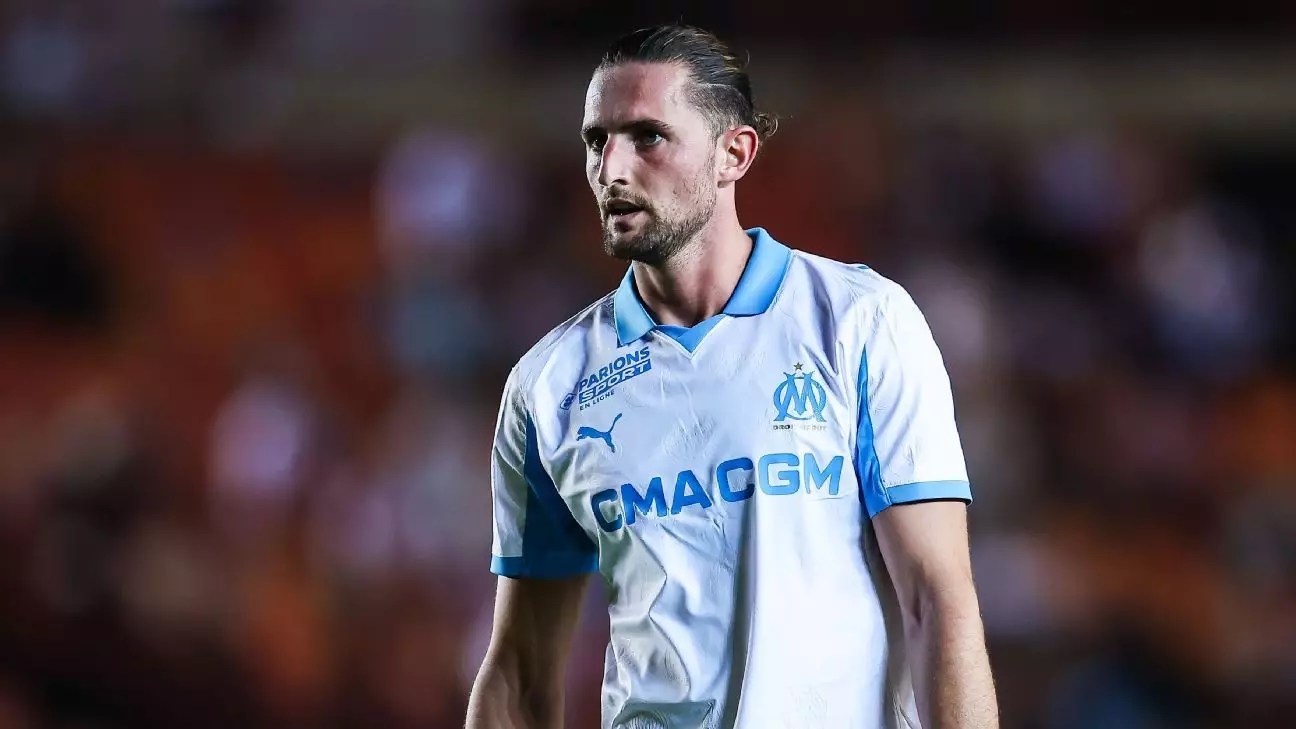The recent incident involving Marseille’s key players, Adrien Rabiot and Jonathan Rowe, underscores a larger issue plaguing contemporary football—failure in leadership and discipline. When a team’s internal environment spirals into chaos, it reflects not only on the players involved but also on the club’s management and their ability to enforce standards. The decision to exclude such influential players altogether signals a breach of the fundamental principle that discipline must outweigh individual talent if a team is to succeed sustainably. Marseille’s choice sends a clear message: behavioral standards are non-negotiable, even for star players. However, this stance also raises questions about whether the club is sacrificing long-term team cohesion at the altar of immediate discipline.
The Cost of Emotional Instability
The altercation that erupted post-match was not an isolated incident but a symptom of deeper issues—pressures to perform, egos, and the lack of emotional control. Rabiot’s frustration over Rowe’s perceived lack of commitment, coupled with Rowe’s rapid offering to potential suitors, points to a fractured internal atmosphere. Talent alone cannot compensate for a toxic environment. Teams in top leagues and world-class clubs understand this; what they need is not only skill but also mental resilience and mutual respect at all times. Marseille’s failure here reflects an unsettling trend: the prioritization of results over human decency. When players act out violently and threaten the delicate fabric of team unity, it’s up to leadership to act decisively, lest the damage sown becomes irreversible.
The Market and Future Uncertainty
Both Rabiot and Rowe find themselves at crossroads with their careers suddenly thrown into flux. The transfer list serves as a stark warning—clubs are increasingly intolerant of players whose behavior disrupts dressing room harmony. For Rabiot, with high-profile interests from Juventus and Inter Milan, this may be both an opportunity and a risk: will he be able to demonstrate professionalism in a new environment? Conversely, Rowe’s situation highlights the precarious position young players find themselves in when their loyalty and attitude are questioned early in their careers. The transfer market, often viewed as a place of opportunity, has become also a space where mental toughness and discipline are judged alongside talent. Marseille’s decision reflects a broader industry trend—no longer is talent enough; behavioral consistency is becoming a prerequisite for career longevity.
Beyond Just a Club Issue: A Reflection of Broader Trends
This incident epitomizes the growing need for cultural shifts within clubs worldwide. It exposes the fragility of team dynamics and the importance of cultivating environments where respect and professionalism are the norm. Talented players can be a double-edged sword—if their egos are left unchecked, they risk damaging the very success they are meant to bring. Marseille’s zero-tolerance stance, while harsh, might serve as a wake-up call across leagues. Clubs need to invest in leadership that emphasizes emotional intelligence as much as tactical acumen. Otherwise, systemic issues like these will continue to undermine the sport’s integrity—where raw talent is no longer enough to guarantee a bright future, but only disciplined, committed individuals will thrive in the sport’s complex ecosystem.


Leave a Reply